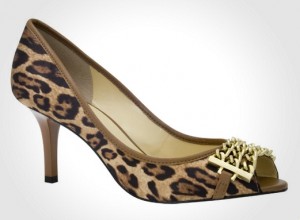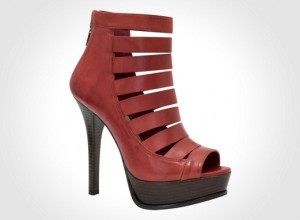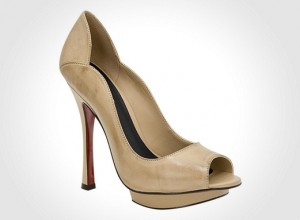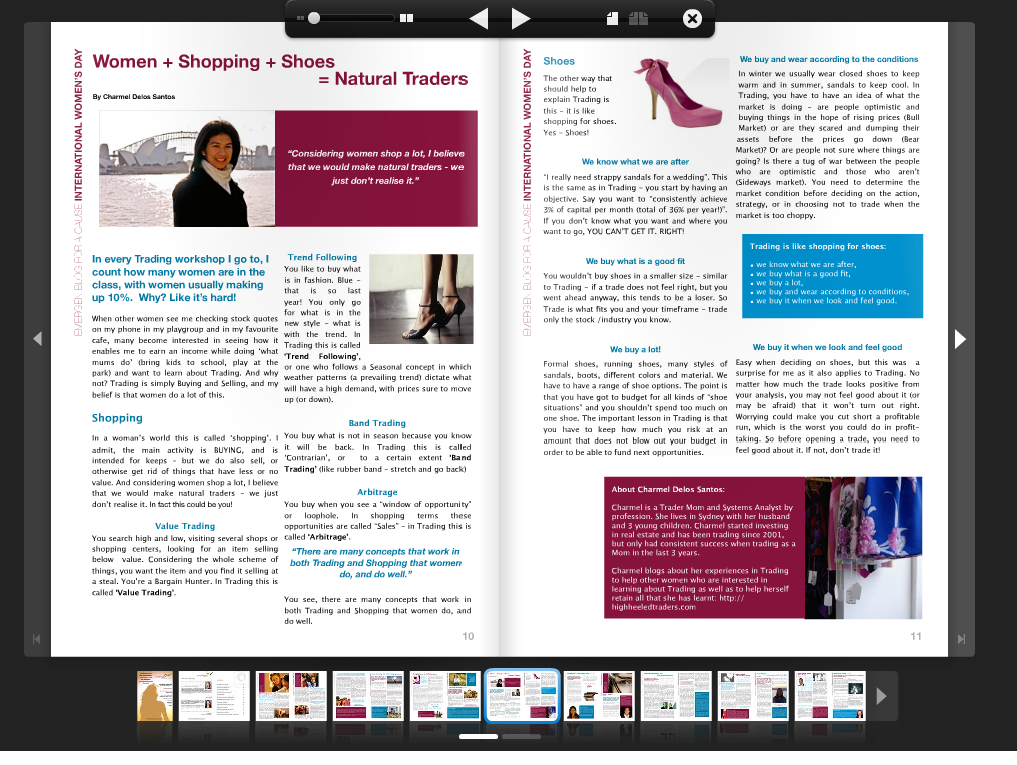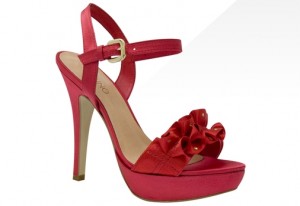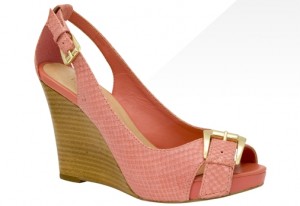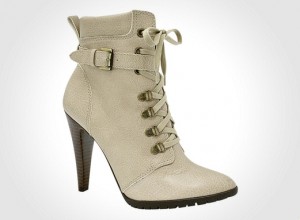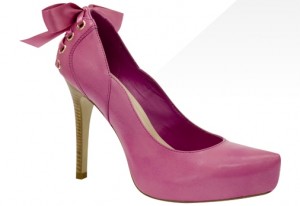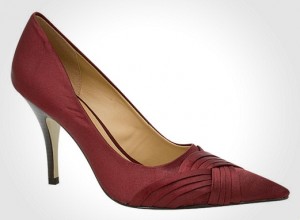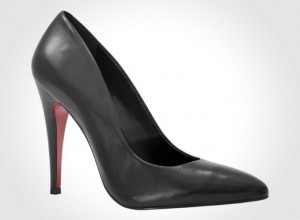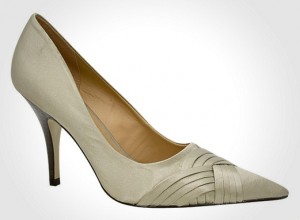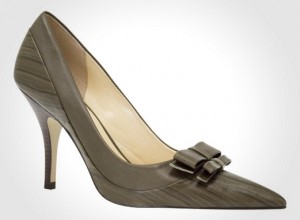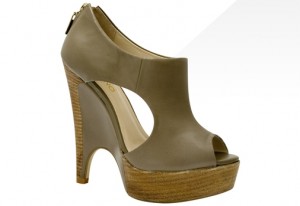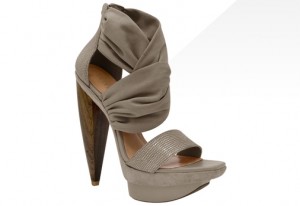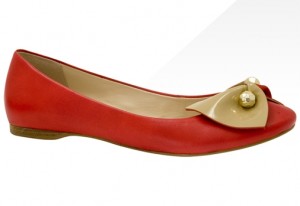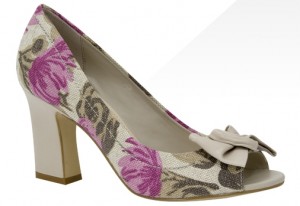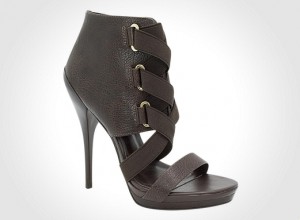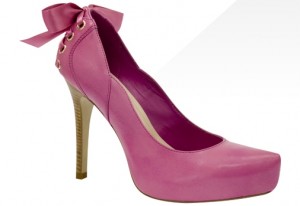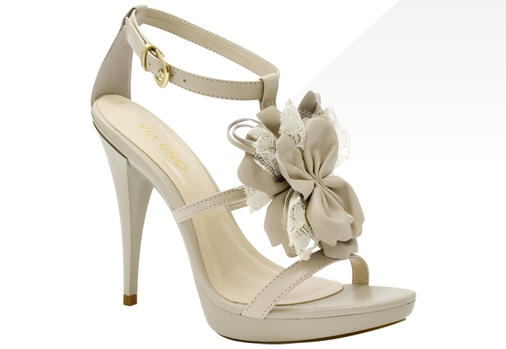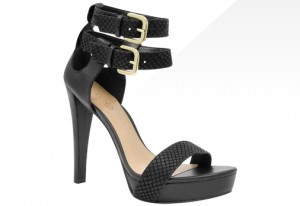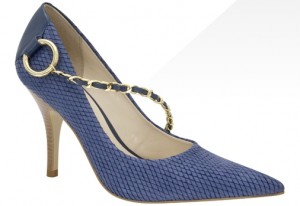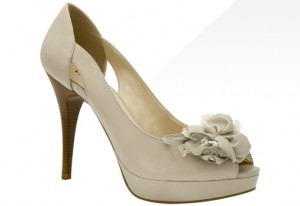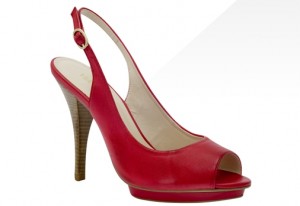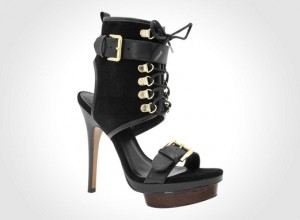
A “Major Major” comparison of Real Estate and Trading, girl you’d be hitting 2 birds with one stone reading this article. Smart and Fabulous. Love it!
Let’s dive in!
10) Liquidity
Try this : put some cereal in a bowl and pour over some milk. You would find the milk would go right into the bottom of the bowl, you wouldn’t see it unless you stir the mixture. Now get some cut-up fruit and put into the cereal. You would find that the fruit would stay on top of the heap.
The milk easily passes through the cereal because it is “Liquid”. It is the same as in investing, “Liquidity” is the ability to easily “get in or out” of an investment ideally without disruption to regular prices, and therefore the ability to convert the asset to cash. (Sound FX – Ding Ding Ding!)
Liquidity is one of the most talked about qualities of an investment, it is important because it gives flexibility to the investor, as well as “safety” in that when times are difficult you can get out of your investment and keep losses small.
a) Real Estate
Any homeowner would know this. You can not sell a house in a day or two. Even if you are able to find a buyer willing to cough up the money you are asking for at the first day you sell, there is a lot of laws that control the completion of the deal. Things like :
- cooling off period — when the buyer gives a written offer to buy there is still a minimum period let’s say 24 hours that they can back out – this would vary according to government regulation
- inspection period – laws try to give people a fair chance to make sure goods / properties are in a condition that is acceptable to the buyer. At this time a building inspector may be brought in to check the soundness of the structure, security , any pest issues etc. At the same time, a Valuer may also come it to check the property’s worth, assessing the construction, fixtures and amenities as well as against the market value of similar properties. The Valuer’s report is a requirement of banks to support the loan and is also useful to the Buyer to aid in negotiation. This can take 1 to 5 days depending on the availability of the professionals needed to be on site, writing up and delivery of the Report
- settlement period – normally a property is bought with a bank loan and you would have to deal with the government’s administrative procedures about the change of ownership etc. Some sellers use this time as well to look for alternative accommodation. This period can take around 6 weeks and negotiated between the two parties.
b) Trading
There is varying degree of Liquidity in the financial markets. Remember this is the ease of getting in or out of the investment. Companies with a big amount of shares available to the public and long history of profitability are called “Blue-Chips” and are the most liquid shares. Smaller companies that trade less than 10,000 shares a day are highly illiquid and hard to get out of, you need to be aware of this when considering buying these investments. In the FOREX market, an estimated US $ 3.98 Trillion a day change hands, it is highly liquid thus attracts many traders
As for time period, trading transactions to Close could take 2 to 4 days.
- Transaction on Shares get completed the next business day. (T +1 where T is the Transaction day)
- Transaction on Options get completed after 3 days. (T+3 where T is the Transaction day)
11) Access to Funds
This is similar to Liquidity however let’s just talk about just getting SOME money out or getting back in the investment.
a) Real Estate
You don’t have to sell your property to get some money out, which is one attraction of Real Estate. You can instead gain access to funds / equity with your home loan.
- Structure your Loan to have a Redraw facility – banks may have a loan product where you can “redraw” your equity. Normally, it would be set up such that you can put in extra payments to the loan (lowering your debt) and get funds when you need it. For this “convenience” however, the banks charge a higher interest rate. You need to weigh this “convenience” against other alternatives like having a specific pool of funds for any such cash needs rather than paying an extra interest on your loan. Think, for a 300,000 loan, an extra 1% is 3,000 per year. Even if it’s only half of that, it’s too much to pay for convenience!
- Refinance – if you have not structured your Loan for a Redraw facility or if your property has appreciated in value and you want to get back some equity, you can Refinance, which means you are basically getting a new loan, paying back the old loan. (You normally do this when you transfer to another lender, but you don’t have to–n just ask your current lender). For example, the original loan is 100,000 which is 80% of the value of the property worth 125,000, then the property increased in value to 170,000. You could refinance with 80% Loan to Value Ratio and your new loan is $136,000. You then pay your old loan which was 100,000 – which makes 36,000 available to you. Note though that you will be subject to loan application process again where your current financial standing ( income and liabilities or other credit criteria) will need to be considered “acceptable risk” for the higher loan to be approved. So if you plan to Refinance, maintain stability in your life, stay in the house you are occupying for 1 year or keep the same job – check with local banks about how many years they require to be in the same housing/ job to be considered a good risk ), as well as planning number of dependents / children and avoid borrowing for cars, furniture etc. Even if there are many “interest-free” offers – RESIST THE TEMPTATION…. RESIST THE TEMPTATION… RESIST THE TEMPTATION. Or … wait for The Sale.
b) Trading
- You will have to sell your investments to be able to gain access to funds. Although unlike Real Estate, you can sell just a part of it and hold on to another portion for further appreciation as you see it.
- Financial markets are volatile, so in case you have sold your shares at a profit for example at a high price, once a decline in the stock price happens, you can always jump back in (Remember your Entry Rules though).
- You can also take advantage of Derivatives like Call Options to roll-up your investment without fully committing your cash. Review “Oceans and Opportunities” and “Learn to Last Part 1 : Financially” and will also tackle Options at a later section.
12) Calculating Payoff
“You Are Here” — these are magic words on a map, when you are travelling or entering an unfamiliar building, at an instant you’d know whether you are in the right direction or not and just help to get your bearings. In calculating “Payoff”, you are mapping at what point you get Breakeven, Profit or Loss. Having this roadmap will definitely allow you to rethink whether to take that direction or not , employ any tricks if you can to get the desired result, or even save resources.
a) Real Estate
- Payoff of Loan / Debt Repayments
Do you know that when you pay your loan more frequently (every fortnight instead of monthly) you pay LESS interest on your home loan? I used a Home Loan Repayment Calculator and it shows that with a Loan of 300,000 with a 7.25% interest rate and Loan Term of 30 years —
If you are paying Monthly – you pay 2046.53
With Total Interest Payable of 436,750.00 for the life of the loan
If you are paying Fortnightly – you pay 1,022.83
With Total Interest Payable of 325,546.00 for the life of the loan
That’s 111,204 – YOU SAVE / DON’T HAVE TO PAY, all because you invested 5 minutes in checking your Loan Repayments Payoff, and found that reducing your Principal faster will save you a ton of money.
Try doing this yourself – I used :
http://www.stgeorge.com.au/personal/home-loans/tools/home-loan-calculators/repayments
I had once a friend propose to me about a buying a worn out property, renovating it and selling it quickly for a profit. I am not too excited about the physical labors involved (I am just not a “handychick” ) but I still did a quick study mapping out the figures, which looks a little something like this:
If buying a worn-out property for renovation, you need to
- Calculate all expenses in opening and closing the transaction, incl real estate agent’s fees to sell, stamp duty, taxes, lawyer’s fees, bank fees etc.
- Calculate the renovation expenses (cost of new carpet, paint, kitchen , bathroom , other fixtures etc), if you want to attract high bids, you have to present the property beautifully, you need a professional to do design / color and take care of aesthetics.
- Calculate / allocate the loan repayments from Buying and Selling the property, this could take up 3-6 months
- Calculate the Total Expenses – add 10-15% for slippage (because risk of being overbudget is always there!)
- Assess market value of similar properties, you need to be in an attractive / competitive price point if you plan to sell / flip quickly.
So say the property is 400,000 and Total Expenses for the project is 60,000 then the property should sell for not less than 460,000 (your breakeven point). Now, if the market value of similar properties in the area is 460 – 480,000 then you will either only breakeven or get a 20,000 profit. Considering the whole risk of the project, doesn’t seem to be worth it.
I came back to him with the conclusion that we need to buy the property in a popular suburb with a steep discount — around 20-30% BELOW market value –in order to make money because we don’t have time on our side as loan payments will eat up profits.
Knowing the Payoff of the transaction you’d be better informed of whether to do the project or how to go about doing it.
b) Trading
With Stocks or Options, it is fairly easy to plot Payoff and breakeven points.
- Say with a Stock costing $5 each, you buy 500, Total Investment = $2,500
- Then add the costs of Opening and Closing the transaction which is just the broker fees and gov’t charges which may be around $50
- Then take the Total Investment $2,500 and Total Cost of $50 to arrive at $2,550, then divide by the number of shares (1000), your breakeven point for each stock is $5.10. Any price move above $5.10 – you are profitable. Any price move below 5.10 you have a Loss.
Starting out though I hear about people wanting to “diversify” thus they think they are doing a “good job” by only risking a small amount on any one company stock . ( and I also admit to having done this ! ) However, the stock price has to make a BIG move in order to be profitable. The share holding would be languishing at a “Loss” for a long time before they are profitable. Instead of “diversifying” stock holding, they’d have better opportunity to profit with being “focused” on one stock and managing the trade carefully instead. In the example below, a 500 shares holding only need to gain 2% to breakeven, while 100 shares holding need to gain 10% to just breakeven.
| |
100 shares |
500 shares |
| Cost per Share |
$5 |
$5 |
| Transaction Costs |
$50 |
$50 |
| Total Investment |
$550 |
$2550 |
| Breakeven point per share |
$5.50 |
$5.10 |
| Percentage gain required |
10% |
2% |
Mapping out Payoff as shown above is helpful to determine how many shares to buy that will allow you to enjoy profits from price rises and give you an idea of how many opportunities you can have. (ie. How many times could your share rise 10% a year? If it does?)
13 ) Depreciation
The general definition of Depreciation is a “decline in value ”.
a) Real Estate
Look around you, anything that was new or young wither and get old. (Ouch! Look the other way!) But that basically is the reason behind Depreciation in the financial world.
As time passes, steel materials rust, masonry can crumble, chemicals for adhesive and paint lose strength, it is reasonable to expect then that buildings made up of these materials slowly deteriorate. Therefore, the value of a building declines. So in Real Estate, brand-new properties are popular with investors. With a new property, every year, you can claim Depreciation of the building and chattels (or fixtures like the plumbing, doors) as a Tax-Deductible Expense. As an example, for a building / structure worth 290,000 you can claim Depreciation of building and chattels around $7200. This will have the effect of lessening the Personal income you have to pay tax on — if property is in your Individual name. A seminar I attended even trumpeted this as a good thing, because you are lowering the taxes you pay or get a big tax refund. BUT, don’t get too excited because when you sell the property, the amount that has been depreciated will be considered in the Tax calculations. I know some people who got a tax bill in one financial year because they had a property that they sold that year but claimed Depreciation on the previous years. It’s beyond the scope of this article to illustrate, but get advise from your Accountant regarding this.
When I got started with real estate, the property was placed under company name – we didn’t get the “benefit” of a tax deduction, but when we sold it, we didn’t have any “nasty surprise” of having to pay more Tax due to the Sale. Again, clarify this idea and tax structures with your accountant – preferably BEFORE doing anything. ( HEHEHE)
b) Trading
In Trading financial markets, you will hear “ currency depreciation” — which means the loss of value of a country’s currency against one or more currencies. It is used interchangeably with “devaluation”.
Depreciation as explained in Real Estate discussion above does not apply in Trading.
14) Taxation
First let me say that it is important to get reading on Tax guidelines, tax agencies do put excellent information for the public and armed with this knowledge, to consult with your accountant for tax matters and the business structures that are available where you invest and your purpose for the investment. There are different tax rates for different structures, people!
This is a good part to tell a story. I remember wanting a distinct pair of shoes, it looks amazing! I really wanted it. BUT, it had killer heels, and I carry the baby around all the time still, hehehe no can do.

I also fancy ballerina shoes, they look so cool and comfortable, when I tried one on however, it didn’t look good on me. My feet were “structurally wide”… hahaha…
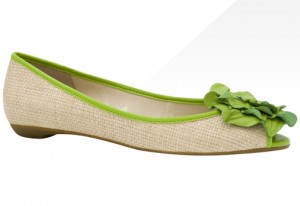
Yes, the world is not fair. Anyway, I did find something that worked for me magically,,,
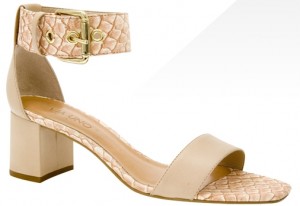
a) Real Estate
The following are common taxes that apply to Real Estate investments
- Land Tax – this is an annual payment to the local government, it is based on the value of your property. I tried to look up the justification/ purpose of this tax – I didn’t find any ! We are just told to pay it. * Surprise! The following link would give you more information.
http://www.osr.nsw.gov.au/taxes/land/general/
- Stamp Duty – this is a payment to the government when you buy property (in Australia – what luck!) Other countries like New Zealand, Singapore, US do not have this tax. There are exemptions like when you are a First Home Buyer and up to a certain threshold. It is applicable to most investment property. Check with your lawyer if you need to pay this tax.
- Capital Gains Tax (CGT) – when you sell or give away an asset for more than the original value, you may are required to pay this tax.
- Income Tax – this is an annual tax on your income for the year, this includes Rent income received from your real estate investments, Dividend income, Interest earnings
- Estate Tax or Inheritance tax — wasn’t there a “joke” about the only permanent thing in the world is Death and Taxes? And there is a special tax that combines both! Estate Tax is tax payable on the transfer of assets of a deceased person. This is paid in many countries, in the United States, it has been controversial in recent years “Unified Gift and Tax System” – you can tell there are many rich persons there intending to get the most advantage they can get!
- Goods and Services Tax / Value-Added Tax – the property itself may be exempt, but services relating to real estate like property management and any other goods you buy to maintain property (like curtains, dishwasher etc) is subject to GST. If your business structure is registered for GST, you need to record and report it. Again, check with your accountant.
Here are some links on Taxes for your reading pleasure….
Australian Taxation Office
–Free Tax Seminar
http://www.ato.gov.au/individuals/content.asp?doc=/content/00154616.htm
–Investment Essentials
http://www.ato.gov.au/individuals/pathway.asp?pc=001/002/002/010/005
b) Trading
There are lesser taxes to pay in Trading for sure —
- Capital Gains Tax (CGT) – when you sell or give away an asset for more than the original value, you may be liable to pay this tax. Say you bought Microsoft at $12 and it is now $20, you have to pay tax on the $8 (less fees) you made on the financial year you sold it.
- Income Tax – this is an annual tax on your income for the year, includes Dividend income, Interest earnings (from your holding account for trading) , as well as rent mentioned above.
- Now just a word about Dividends – if they are “fully-franked” that means tax has already been paid by the company on the profits from which dividends are paid. Individuals may not need to pay tax on it. Australia, New Zealand, United Kingdom has similar system called “dividend imputation”. Tax laws vary from country to country and business structure so check with your accountant.
- Goods and Services Tax / Value-Added Tax – Shares may be exempt, but services relating to it like brokerage and clearing is subject to GST. If your business structure is registered for GST, you need to record and report it. Again, check with your accountant.
15) Legally -all yours
Best of course to consult with lawyers / solicitors regarding legal issues, I thought I’d just give you a few memorable (and some painful) lessons on legal matters from my past life.
a) Real Estate
- Ownership rules – pay attention to this. You don’t want to be on the hunt for property you can not own. We arrived here in Australia as Temporary Residents and there are constraints to what Non- Permanent Residents / Citizens can own – mostly new properties are available for investment. Also, there are government “First Homeowner Grant” program, (usually to Individuals) and since we want to avail of it, then we opted to use another entity for investing / real estate transactions.
- Contract for Sale – it is wise to check the whole sheaf of papers enclosed in a Contract for Sale. I like to pay attention to:
- whether the property has Liens registered which could be a complexity. A “Lien” is like a legal claim to the property, which can prevent it from being sold, this could be from a second mortgage or if the owner owes money to anybody and used that property as security or collateral.
- If the property is yet to be built or Off-The-Plan, it should have an attachment of all Fixtures and Fittings to exact specifications. For example, check the dishwasher brand and capacity, the dimensions of the sink, the sample of carpet to be used etc. This is an area where builder / developer could go cheap if they are vague in the Contract and could be very disappointing when you see it completed.
- If you have plans to rebuild or redevelop, note the layout of the land, where the Easements are located. Easements could be used for the transport of services like water, gas, telephone etc. Since maintenance or repair is required on such services, you can not build on the surface, thus you need to consider this if you have plans to further develop the property.
- Exchange of Contracts – this is when buyer and seller commit to the Sale of the property. A Deposit is payable at this point, usually 10% of the Sale Price. If the Buyer does not want to proceed with the Sale at any time after that, goodbye Deposit! It is forfeited in favour of the Seller. Check that there could be a Cooling-Off period e.g. 5 days from Exchange (just in case you change your mind or any unfortunate event happens, you can still get off the hook!) This is good to know, earthquake, tornado, floods can happen without warning.
- Sunset Clause – this is applicable to properties that are being sold “off-the-plan” or those that are still being constructed. In Australia, development projects are required to have a “final completion date” – after which your obligation to the contract evaporates. ( You know, like the Sunset — there is no more light after the sun goes down). Buyer and seller are normally freed from the contract. The Deposit and any interest incurred is paid back to the Buyer. This sounds really good except that, I heard that some sellers are happy to be freed THEN jack up the price of the property and find other buyers. So it would be good that you check that the Seller can not rescind on the contract even with the Sunset clause.
- Settlement time limits – after Exchange of Contracts, you proceed to “Settlement” to complete the transaction. This is when the transfer of title is done and the balance of the Purchase Price is paid (Deposit is paid at Exchange of Contracts) and you become the Legal Owner of the property. Law varies per area but prescribes a period of time e.g. six weeks after Exchange to Settlement, which can be negotiated. It is good to know this time limit, you can negotiate better price or terms for a property when the Seller is in a hurry to complete the deal.
- Rental Guarantees – some Sellers will entice buyers with Rental Guarantees. Which means they are willing to pay Rent for the property after Settlement. They could offer 2 weeks or so. Took the bait on this one as it seems straightforward, BUT, when we actually got a tenant occupy in a week, instead of paying Rent for the agreed 2 weeks they just want to pay the number of days it is actually vacant. Frustrating, because we offered $200 discount on the Rent to move in quickly as it was nearing the Christmas holiday period. So I can only advise now to make sure a Rental Guarantee is a guaranteed amount of money in case you think of similarly offering discount to minimize the vacancy.
This link from the Department of Fair Trading New South Wales could be handy for your information gathering:
http://www.fairtrading.nsw.gov.au/Tenants_and_home_owners/Buying_property.html
b) Trading
I have nothing much to write here. ( What a relief!) Trading has few legal complexities. Only Ownership rules come to mind, your financial institution/ broker would have Account Opening guidelines you can refer to. Usually, they would be in compliance with local ownership rules (for foreign investors), tax, terrorism or “anti-money-laundering” laws. As a retail investor / trader, once you’re set, there is practically no legal matter to attend to – just buy and sell, buy and sell.
16) Systems
If am often awed by living in these times. There is so much one can do just sitting in one place, all because of the Systems that we are surrounded with. You want to send a written communication, no need for pen and paper, stamp or walking to post office, you get online and send an email, faster and cheaper too. You can say a System is basically a series of steps that achieve something . In investing / Trading, you need Systems to do work for you.
a) Real Estate
A very good thing about investing on Real Estate is that once you’ve got a new property, and a property manager, there is nothing much to do, it really is a passive investment. The property itself is composed of many systems – electric system, plumbing system, ventilation etc, the property manager you should choose should have business systems that easily and promptly pay you and inform you of the income and expenses and anything that require your action. You can go weeks and months without needing to do anything and receive the rental income.
So when choosing to invest in Real Estate, look for new properties (the systems are all new) and a well-established property manager with at least the systems mentioned above.
b) Trading
One of the BIG lessons I ever got in trading which I hope you also remember is to “trade a System that fits you” (from the book “Market Wizards” by Jack Schwager and echoed in Dr. Van Tharp’s book – “Trade your way to Financial Freedom”).
- So first agenda is to Know Yourself.
- Next create a System.
OK we’re done! Hehehe I wish…truth be told, it takes time to know oneself, what you believe in, then create a Trading system that you yourself are convinced to follow.
3 Ways to get a Trading System
- YOUR OWN SYSTEM. After you’ve come to terms and possibly fixed up your Belief System (make sure beliefs are all in agreement), from there forming your Trading System, then you can “practice trade” or test and revise as needed until it is profitable. At the start you may have to follow your system manually (making sure you exercise self-control), then have it automated (hire an IT professional), which will give you passive income. Even if it’s not computerized, if you trade efficiently with your system, you can achieve income of stellar returns, say targeting only 3% per month x 12 months, that’s 36% per year. (Compare with 7% bank interest !) One of my systems produced extra income for me even with a seesawing market, it afforded me to visit my parents overseas after a few months giving birth, and the capital was still working for me after coming back from vacation — how good is that?!
- PROFESSIONAL SYSTEM. The people who trade professionally (fund managers, hedge funds, mutual funds etc ), who trade the money of other people, have computerized trading systems with which to put their millions to billions of dollars to work for their clients. They can achieve upwards of 20% from their Trading. You can choose to put your money to work in financial markets this way. Be careful though, you still need to subscribe to “trade a System that fits you” – if the fund manager’s system need you to tolerate a loss of 50%, can you take it?
- BUY A SYSTEM. Mind you, systems for sale costs thousands of dollars, and is not all guaranteed to produce stellar results. I’ve met many traders who say they bought a system and tweaked it because it does not address all the trading components they want (because the people who develop this commercial system have different beliefs of what they should put in there!) now, just asking, if you are going to change things, why not just develop one yourself?
17) Location and Environmental factors
a) Real Estate
They say the 3 most important things in Real Estate is Location, Location, Location.
- Investment properties in a good location command increasing prices and rents. They should be close to public transport system, places of work, and amenities like shopping, schools, recreational areas (parks, beach, sports centers).
- However, there are environmental factors that should be considered in buying or building investment property. A variety of environmental forces affecting life and property– Earthquakes, floods, tsunami, volcanic eruption, blizzards, hurricanes, forest fires, desertification, rising sea levels, hazardous chemicals (if previously used as industrial waste / dumping facility) etc. can be painful financially.
- You might be able to check this with locals or government development plans, some of them carry historical information of damages from environmental factors. In the recent widespread flooding in Queensland, they say the same thing happened 30 years ago, and so this is a clue for flatlands or low-lying areas close to river systems. Many areas in the continental United States experience yearly visits of hurricanes, while earthquakes are common to many countries in the Pacific Rim.
Just be careful and know the environmental risks to your investment, ensure the structures comply with Building Codes and get the appropriate protection.
b) Trading
- ACCESS. With the mighty internet and telecommunications services we can do so much more in less time and even while on the move or on places that have been considered far far away. I got online while in our island hometown in the Philippines and checked my trading account in Australia ! Broadband rocks! In Trading, you can access your online broker to place trades or monitor them wherever you are, or whatever time you choose, giving you flexibility, even freedom!
- OPPORTUNITY. Another good thing about Trading is that you are not restricted to do business by your location, you can take advantage of opportunities outside of your home country. Like being able to trade stocks in the New York Stock Exchange even through your local broker or with a financial institution of your target country. You can participate in the growing economic prosperity of other countries by trading Exchange Traded Funds for that country, for example, Indonesia or Brazil or by trading their currencies.
18) Protection
Recent happenings in Japan had a disastrous effect on Real Estate and Trading in financial markets – when the earthquake struck, the tsunami came and destroyed life and property. Then there was the related nuclear crisis that is still unfolding, limiting power supplies across the country. Homes were shattered for sure, and factories had to close. When all this happened, the Japanese Yen strengthened which had the effect of driving down the value of the Japanese exporters and with risks rising due to the nuclear crisis, companies mining Uranium and other nuclear fuels (many in Australia) dived, there was also widespread selling in other markets including normal safe haven Gold were converted to cash.
You wonder, “when these things happen if there is any way to get some protection? ”
a) Real Estate
Insurance is a common tool in property investing:
- Home Insurance – insures the building structure, often required by banks.
- Home Contents Insurance – insures the personal property of occupiers
- Landlord Insurance – insures from loss of rental income
Ensure that the value of your property / asset is reflected correctly in your insurance policy to avoid being “underinsured” – this is when your property whose current value is 300,000 is only insured for 200,000 – which was the original price you 10 years ago! That would make it difficult for you to rebuild or being short in paying your loan on the property.
Where Insurance companies do not cover damage from environmental factors or what they call “acts of God” or “force majeure” – there might be available “coverage” from the government, like the Earthquake Commission (EQC) established by the government of New Zealand. It covers residential property owners for “damage caused by earthquake, natural landslip, volcanic eruption, hydrothermal activity, tsunami, including storm, flood or fire” caused by those environmental forces. Check out their website —
http://www.eqc.govt.nz/
b) Trading
You might ask, can I be insured against a fall in my stocks as I am going to retire soon? As a matter of fact you can! You just have to know about a financial instrument called “Options”.
An Option is a contract between 2 parties, giving the buyer (or taker) the right but not the obligation either to buy or sell an asset at a specified price, on or before a specified date. For this right, a buyer pays the seller a “premium” just like commonly associated with “insurance” in everyday life. Call Options give you the right to Buy and Put Options give you the right to Sell. Now back to protecting the value of your assets – you can Buy Put Options paying 30c, but you now have the right to Sell your stock, at say $20. Even if the stock price falls to $18 you have the right to sell at $20. You have protected the value of your stock. (Thank heavens!)
Options actually cover a wide variety of financial instruments :
- Company stocks (like Apple, Shell Petroleum)
- Stock Indices (Dow Jones Industrial Index, Nasdaq 100)
- Exchange traded Funds (like SPDR Gold Shares, iShares MSCI Brazil Index Fund)
- FOREX (actively traded currency pairs AUD/USD, JPY/USD, EUR/USD)
- Commodities – Agriculture (corn, pork bellies), Energy (natural gas, oil), Metals , FX, Weather, US Treasury bonds
- Interest Rates
Options are widely available and you can check with your local Exchange whether they are available for you to trade. When you get more sophisticated, you may also want to trade / open an account in countries with more advanced Financial systems — like Australia or United Kingdom, or in the United States. In the US you’d find one of the oldest, largest and most diverse marketplace for Options and other derivatives — the Chicago Mercantile Exchange — they even have Options traded to protect profits from “washing away” due to Rainfall. I like the sound of that!
http://www.cmegroup.com/
_____________________________________
YOUR SUMMARY
Now I didn’t promise an exhaustive list, but hope you learn much because this is exhausting!
For your own benefit, you can make a table of all these points and score Real Estate and Trading – as it relates to your situation. That would give you clarity on what to focus on first. For Real Estate, I am not saying it is easier but you can get professionals help you with the complicated stuff, and with the right property and strategy, it is a great passive investment! Trading as you have seen is very flexible, lucrative, and offer a lot of protection, but it does take skills and knowledge to get good returns.
Both deserve to be studied, clearly you’re already all up on this. Next time someone says to you, “Trading is gambling”, you can say, “Excuse me! People’s retirement funds are invested in financial markets–You might want to broaden your knowledge”. I’d be tickled if you also recommend my blog 🙂
__________________________________________
Thanks to Via Uno for the Major Shoes posted here…
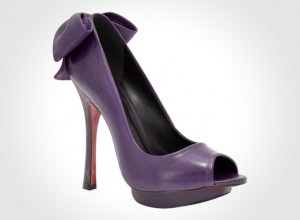 I was looking down at the peeptoe shoe I tried on, pretty, but one of my toes was sticking out like a hotdog that’s too big for the bread. Can’t have that! My shoe size is 8 ½. I eventually landed on a size 10. Monstrous! I knowwwwwwwwww. But what the heck, it’s just a number, I will rather have what fits me perfectly.
I was looking down at the peeptoe shoe I tried on, pretty, but one of my toes was sticking out like a hotdog that’s too big for the bread. Can’t have that! My shoe size is 8 ½. I eventually landed on a size 10. Monstrous! I knowwwwwwwwww. But what the heck, it’s just a number, I will rather have what fits me perfectly.





